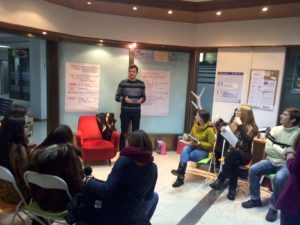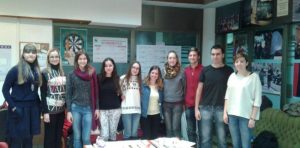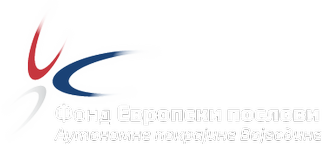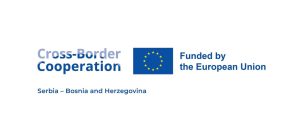Students undergoing the training course “EU Funding Opportunities”
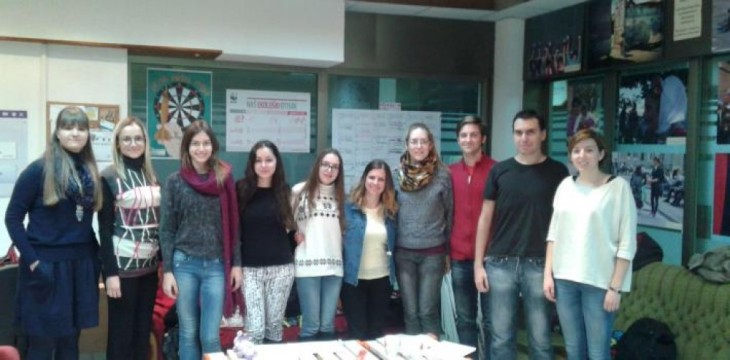
The three-day training course “EU Funding Opportunities” for the members of the student organisation “Erasmus Student Network Novi Sad” was held from 16th to 18th December 2015 by the representatives of European Affair Fund of Autonomous Province of Vojvodina, Čarna Zeljković and Tamara Glišić, with the aim of enhancing the understanding of project funding under the EU programmes and funds available to institutions from the Republic of Serbia.
During the training course, the participants obtained information on the opportunities for application submission under EU programmes primarily for youth organisations and other non-governmental organisations. On the first day, the participants were presented the structure and working mechanism of cross-border and trans-national cooperation programmes financed under the Instrument for Pre-Accession Assistance, with special emphasis on CBC programmes available to institutions on the territory of Vojvodima, i.e. programmes implemented with partners from Hungary, Romania, Croatia and Bosnia and Hercegovina.
The greatest interest was for Erasmus+, which is aimed at the sectors of education, training, youth and sport, especially for the youth component of the programme. The youth component of Erasmus+ provides opportunities for youth organizations to submit project proposals as applicants or project partners under the Key Action 2 of Programme, which refers to capacity building in the field of youth – Western Balkans Youth Window. Moreover, the discussion touched upon the opportunities for mobility, both for students and youth workers, within Erasmus+.
During the second day of the training, the participants gained hands-on experience in project development by formulating the basic project elements in the logical framework, while the last day of the training was reserved for project budgeting and structure of application forms. The training course resulted in two project ideas which referred to the problems of young people, e.g. lack of cultural content for young people in rural areas and their bad eating habits.
